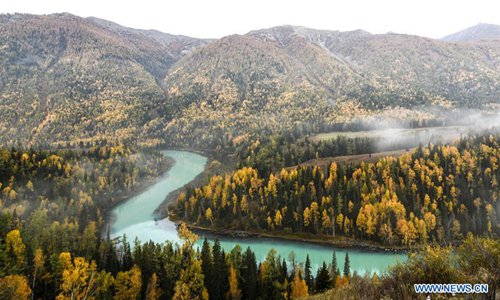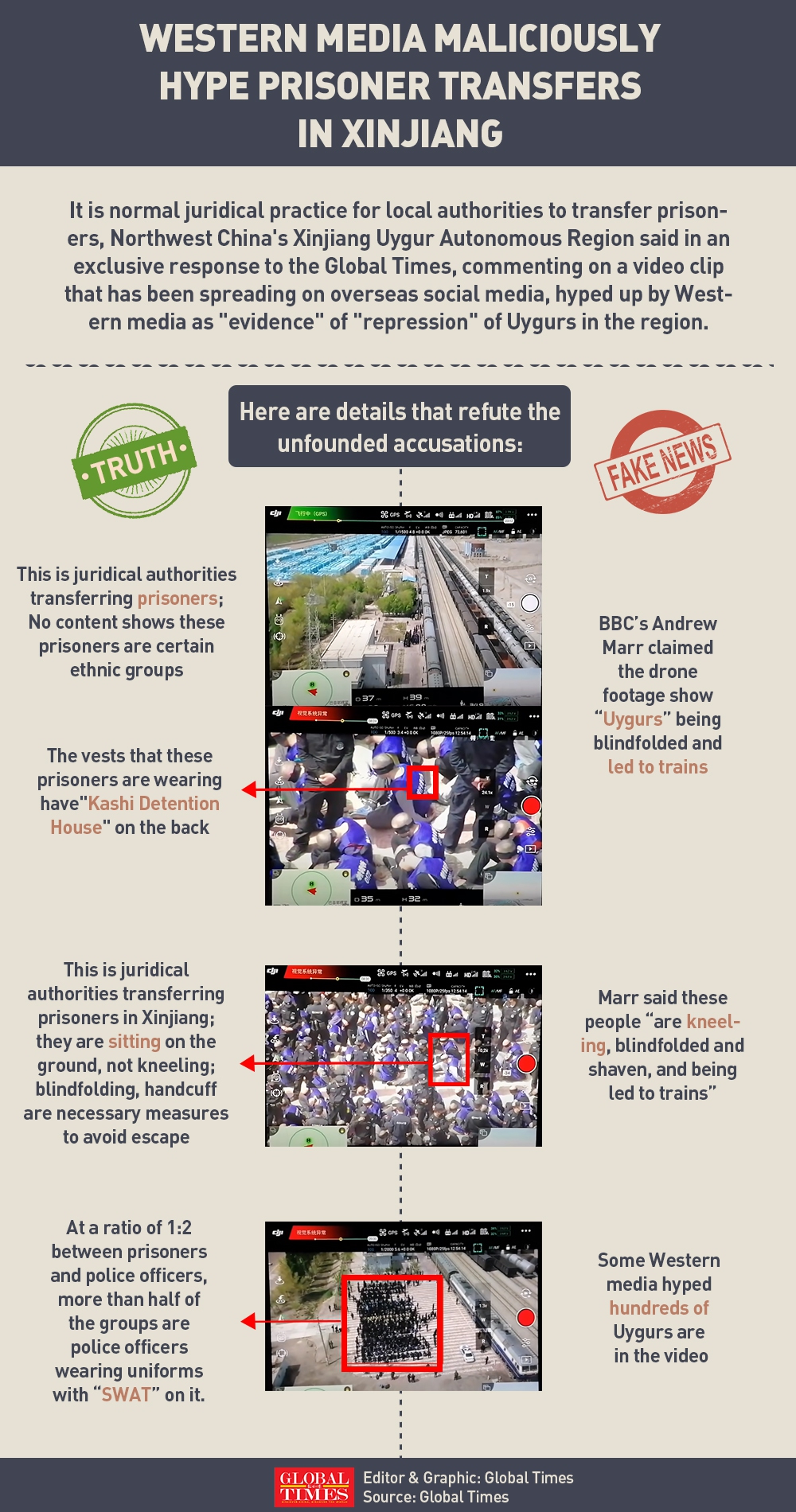
Photo taken on Sept. 24, 2019 shows the scenery of Kanas scenic spot of Altay, northwest China's Xinjiang Uygur Autonomous Region. (Photo: Xinhua)
It is normal juridical activities for local authorities to transfer prisoners, Northwest China's Xinjiang Uygur Autonomous Region said in an exclusive response to the Global Times, commenting on a video clip that has been spreading on overseas social media, which was hyped by Western media as "evidence" of "repression" of Uygurs in the region.
"Fighting crime is something every country would do. Xinjiang's crackdown on crimes has never targeted any ethnic group or religion," Xinjiang authorities told the Global Times.
Video which showed a group of blindfolded people sitting on the ground handcuffed went viral on overseas social media after BBC's Andrew Marr Show showed it while interviewing Chinese Ambassador to the UK Liu Xiaoming on July 19.
Some media said the video proves the existence of a "concentration camp" in Xinjiang and the local government's "repression" of Uygurs.
Marr claimed in the interview that the tape, which has been "authenticated by Western intelligence agencies and Australian experts," was Uygur people being pushed on the train.
Ambassador Liu said, "Sometimes you need to transfer prisoners, you know, in any country."
Some people in the video wore blue vests with "Kashi Prison" written on them, and guards had "SWAT" written on their uniforms.

Infographic: GT
The video, which was taken by a drone, was first uploaded by the Youtube account "War on Fear" on September 17, 2019, and CNN reported on it that October. The account was registered on that day, and has only released that video.
The Global Times reached some experts, who said that putting the authenticity of the video aside, the content itself cannot prove "repression of Uygurs" like what some Western media claimed.
It is malicious to call prisoners' transfer "repression of ethnic groups" in Xinjiang. No information from the video showed it was about Uygur or other ethnic groups, Li Wei, a counterterrorism expert at the China Institute of Contemporary International Relations in Beijing, told the Global Times.
Li noted that there is no so-called detention camp in Xinjiang. The vocational education and training centers in Xinjiang were not "camps" as some Western media described.
"To avoid gangs from growing in prisons, sometimes we need to transfer prisoners," a source from the prison system in China who asked for anonymity told the Global Times. He noted that China has strict rules on transferring prisoners - handcuffs and blindfolding are necessary measures to avoid a possible escape or disputes, or collusion among inmates.
Male prisoners are usually required to cut their hair to avoid them being grasped and fatally injured in possible tussles with other inmates. The vest prisoners wore called "identification suit" is also a measure to avoid a possible escape, the source said.
"These are prisoners who pose a threat to society… any relaxing of the measures may undermine social security," he said.
Experts noted that compared with China's regulations on prisons in accordance with its laws, the US has a notorious record of human rights abuse of prisoners. American nongovernmental organizations also urged the UN Human Rights Council to address the widespread violations of human rights of prisoners in the US, US media reported.



